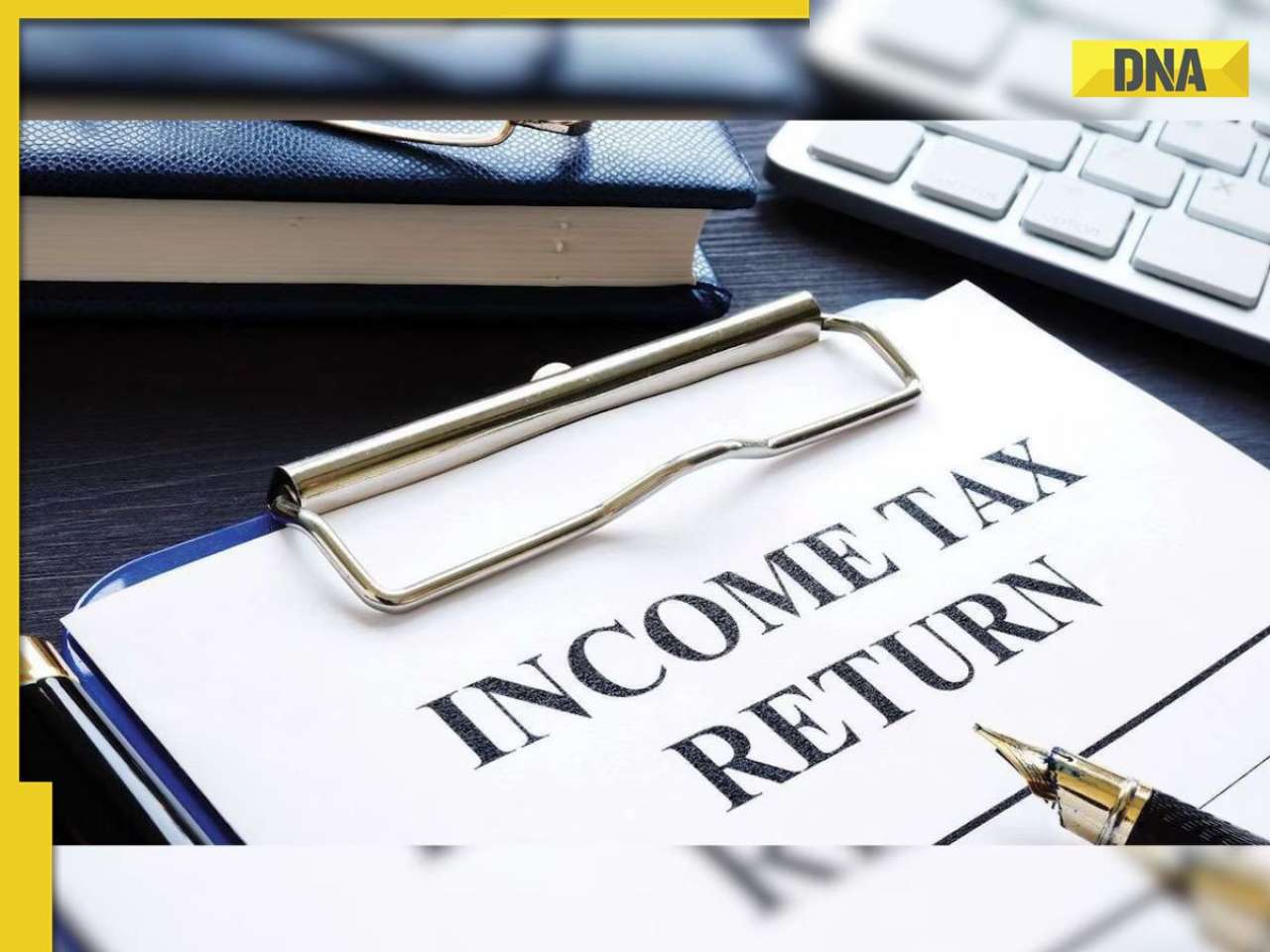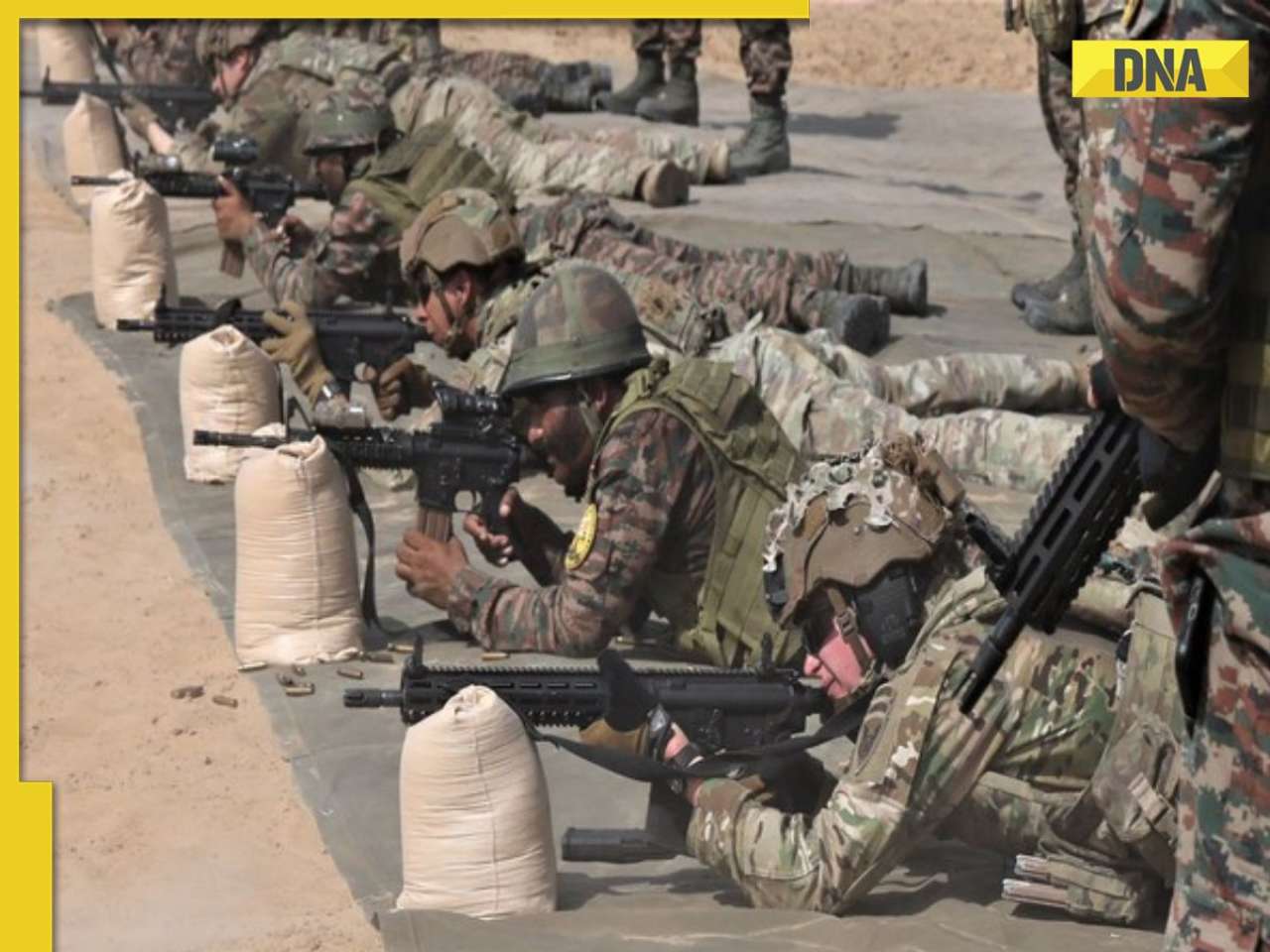At Tysons Galleria, an upscale shopping mall in northern Virginia, Black Friday meant black tie, Gucci and marble floors.
At Tysons Galleria, an upscale shopping mall in northern Virginia, Black Friday meant black tie, Gucci and marble floors.
For the weekend after Thanksgiving that officially kicks off the holiday spending season, the mall hired male modelactors, dressed them in white gloves and top hats and paid them to welcome shoppers with witticisms and compliments.
"This is the upper echelon," observed Matt Baldwin, 37, a Galleria 'greeter.' "Like a lot of actors, I've worked retail so I know what these people are wearing. They're wearing jeans, but they''re $350 jeans."
Meanwhile, across the country in Los Angeles' Eagle Rock Plaza, shoppers shuffled in from the parking lot unattended, bleary-eyed from chasing bargains all night. Instead of Chanel, they found $5 tablecloths at Anna's Linens with not even a mid-priced mall standby like Gap in sight.
Shoppers' experiences at the two malls illustrate the uneven quality of the US economic recovery. Affluent Galleria shoppers can scoff at the Black Friday weekend''s promises of bargains galore. At Eagle Rock, they are Black Friday believers, convinced it helps them afford the holidays.
"I don't believe in Black Friday," said Shamideh Bazel, 63, of the day that kicks off the U.S. holiday shopping season.
A Muslim native of Iran whose family celebrates Christmas as a fun secular holiday, she said curiosity drew her to the Galleria that day. She considers Black Friday a ploy on retailers'' part to induce shoppers to spend, not save.
A Pew Research Center survey found 55% of the country lost economic ground during the recession, losing jobs and defaulting on loans. Those folks tend to shop Eagle Rock.
There was no Gucci on Raul Aficionado's shopping list.
At 9 am, Aficionado, 30, was on his third mall of the day. His odyssey started with a Wal-Mart, but he got too cold waiting in line at 2 a.m., and instead headed for another local mall with a Disney store so he could buy stuffed animals marked down to $8 from $25, he said.
Burquas and Betsey Johnson
The other 45% of the country held its own, according to the survey, conducted in May of a nationally representative sample by telephone. They were affected, but did not suffer serious economic hardship. That would be the Galleria gang.
Proximity to the nation's capital supports the local economy in Fairfax County, home to the Galleria, elite lobbyists and many of Congress' wealthier members.
Oil billionaires, including burqua-clad Saudi princesses, make the adjacent Ritz-Carlton their Washington, DC home base, and tour the Galleria on chaperoned shopping sprees.
"This is the civilized Black Friday experience," said Galleria spokeswoman Aba Kwawu.
Consumer spending accounts for about 70 percent of the $14.3 trillion American economy, and Black Friday is a key time for merchants. Some store chains generate up to a third of their annual sales during the November-December period.
Most forecasts call for slightly more spending in 2010.
The National Retail Federation forecast a 1% increase this year to $688.87 in holiday spending per person.
So the Galleria discounts, and deeply -- but discreetly.
"You can buy Prada, Gucci, at discount. It's the experience and the way they present it that's different," Kwawu said.
Apparel retailer Betsey Johnson was offering 40% off its offbeat women's fashions. At cookware chain Williams-Sonoma Inc, customers could snag up to 75% discounts.
Savvy shoppers were suspicious.
"I know there aren't a ton of legitimate deals," said Allison Hartnett, 20, a student at Miami University in Oxford, Ohio who said she'll spend about $1,000 on gifts this year.
Losing jobs, buying gifts
Earlier this fall, the National Bureau of Economic Research, considered the arbiter of recessions, designated June 2009 as the end of the slump, which started in December 2007.
Yet today, more than half of those who lost ground say they are just getting by, at best, according to the Pew study.
"I'm just buying gifts for my closest friends and family this year," said Jessica Rodriguez, 26, outside Eagle Rock's Target. She'll spend $500, down from $800-$900.
The physical therapy business where she works as an assistant closed a couple of offices. Colleagues got laid off.
In Eagle Rock's Los Angeles County, which was hit particularly hard by the housing market downturn, the median income of $55,452 is near the national median of $52,029, according to the latest census data.
By contrast, Fairfax County's median income is $107,075.
Like physical-therapy assistant Rodriguez, Eagle Rock shoppers tend to work low-to-mid paying jobs in businesses that cater to the ritzier neighborhoods that surround them. That includes nursing, accounting, plumbing and construction.
"Two Americas were revealed by the recession," said Diane Swonk, chief economist of Mesirow Financial. "What it's giving us is a real bifurcation of consumer spending."
Still, even at Eagle Rock, American optimism lives.
"I feel better this year," said Emily Irlan, who has been out work since she lost her human resources job last year. "I really think the election is showing the government, 'Stop spending our money, and don't raise our taxes.'"
She paid for her Cuisinart coffee maker, down to $90 from $160, out of savings.
She's confident she will eventually get another job. "America will bounce back," she said. "We always do."
![submenu-img]() Verantes Living Awarded as India’s No.1 Stainless Steel Modular Kitchen Brand
Verantes Living Awarded as India’s No.1 Stainless Steel Modular Kitchen Brand![submenu-img]() Narayana Murthy’s Infosys set to invest Rs 170000000 in this startup
Narayana Murthy’s Infosys set to invest Rs 170000000 in this startup![submenu-img]() 'Towards reducing pollution..': Delhi govt approves replacement, induction of electric vehicles in 'Gramin Sewa'
'Towards reducing pollution..': Delhi govt approves replacement, induction of electric vehicles in 'Gramin Sewa'![submenu-img]() Discover Stainless France, the Leading Supplier of Cobalt Chrome
Discover Stainless France, the Leading Supplier of Cobalt Chrome![submenu-img]() Kritika Kamra says men should take responsibility for fighting sexism: 'There's a thin line between...'
Kritika Kamra says men should take responsibility for fighting sexism: 'There's a thin line between...'![submenu-img]() किसी को हो रहे Genital पर घाव, किसी को पैदा हो रहे मृत बच्चे, कांगो के Mining town में Mpox के नए स्ट्रेन से दहशत
किसी को हो रहे Genital पर घाव, किसी को पैदा हो रहे मृत बच्चे, कांगो के Mining town में Mpox के नए स्ट्रेन से दहशत![submenu-img]() Brain Stroke Causes: हवा में शामिल प्रदूषण से कई गुणा बढ़ा ब्रेन स्ट्रोक का खतरा, चौंका देगी लैंसेट की रिपोर्ट
Brain Stroke Causes: हवा में शामिल प्रदूषण से कई गुणा बढ़ा ब्रेन स्ट्रोक का खतरा, चौंका देगी लैंसेट की रिपोर्ट![submenu-img]() इजरायल के पेजर, वॉकी-टॉकी हमले से हिजबुल्लाह खौफजदा, डरा-सहमा दिखा चीफ नसरल्लाह
इजरायल के पेजर, वॉकी-टॉकी हमले से हिजबुल्लाह खौफजदा, डरा-सहमा दिखा चीफ नसरल्लाह![submenu-img]() Shabana Azmi ने बॉलीवुड हसीनाओं के साथ मनाया अपना 74वां जन्मदिन, बर्थडे पर की जमकर मस्ती, देखें वीडियो
Shabana Azmi ने बॉलीवुड हसीनाओं के साथ मनाया अपना 74वां जन्मदिन, बर्थडे पर की जमकर मस्ती, देखें वीडियो![submenu-img]() कनाडा में पढ़ना हुआ मुश्किल, 35% स्टूडेंट वीजा में कटौती, भारतीय छात्रों पर कैसा रहेगा इसका असर?
कनाडा में पढ़ना हुआ मुश्किल, 35% स्टूडेंट वीजा में कटौती, भारतीय छात्रों पर कैसा रहेगा इसका असर? ![submenu-img]() Ford to return to India after 2 years with reopening of....
Ford to return to India after 2 years with reopening of....![submenu-img]() Maruti Suzuki launches new Swift CNG, check price, mileage, other features
Maruti Suzuki launches new Swift CNG, check price, mileage, other features![submenu-img]() ‘30 LPA, 3BHK, no in-laws’: Woman earning Rs 1.32 lakh salary lists demands for future husband, netizens say...
‘30 LPA, 3BHK, no in-laws’: Woman earning Rs 1.32 lakh salary lists demands for future husband, netizens say...![submenu-img]() In a big EV push, Centre launches Rs 10900 crore PM E-Drive scheme to replace…
In a big EV push, Centre launches Rs 10900 crore PM E-Drive scheme to replace…![submenu-img]() World’s longest car has helipad, swimming pool, mini-golf course, can seat over…; it cost…
World’s longest car has helipad, swimming pool, mini-golf course, can seat over…; it cost…![submenu-img]() Meet IPS officer who has resigned after serving for 18 yrs due to...
Meet IPS officer who has resigned after serving for 18 yrs due to...![submenu-img]() Meet Indian man, who got hired whopping Rs 12000000 crore salary job, not from IIT, IIM he is...
Meet Indian man, who got hired whopping Rs 12000000 crore salary job, not from IIT, IIM he is...![submenu-img]() Meet woman who left medical career for UPSC exam , became IPS with AIR 165 then left job due to...
Meet woman who left medical career for UPSC exam , became IPS with AIR 165 then left job due to...![submenu-img]() Meet man, who left NDA due to depression, then cracked UPSC exam to become IAS officer, his AIR was...
Meet man, who left NDA due to depression, then cracked UPSC exam to become IAS officer, his AIR was...![submenu-img]() Meet youngest CEO of India, who created first app at 9, began his own company at 13, now he is…
Meet youngest CEO of India, who created first app at 9, began his own company at 13, now he is…![submenu-img]() Congress President Kharge Slams & Opposes 'One Nation, One Election' Proposal, Calls It Impractical
Congress President Kharge Slams & Opposes 'One Nation, One Election' Proposal, Calls It Impractical![submenu-img]() Why 'One Nation One Election' Is important? Ashwini Vaishnaw Explains After It Gets Cabinet Approval
Why 'One Nation One Election' Is important? Ashwini Vaishnaw Explains After It Gets Cabinet Approval![submenu-img]() Jammu Kashmir Assembly Election 2024 Phase 1 Highlights: What Happened In First phase In J&K Polls?
Jammu Kashmir Assembly Election 2024 Phase 1 Highlights: What Happened In First phase In J&K Polls?![submenu-img]() One Nation One Election: Centre Clears Proposal, Bill To Be Introduced In Winter Session | Modi 3.0
One Nation One Election: Centre Clears Proposal, Bill To Be Introduced In Winter Session | Modi 3.0![submenu-img]() Haryana Elections 2024: Is BJP Set To Lose In Haryana? Anti-Incumbency And Other Factors Analysed
Haryana Elections 2024: Is BJP Set To Lose In Haryana? Anti-Incumbency And Other Factors Analysed![submenu-img]() Verantes Living Awarded as India’s No.1 Stainless Steel Modular Kitchen Brand
Verantes Living Awarded as India’s No.1 Stainless Steel Modular Kitchen Brand![submenu-img]() Narayana Murthy’s Infosys set to invest Rs 170000000 in this startup
Narayana Murthy’s Infosys set to invest Rs 170000000 in this startup![submenu-img]() Discover Stainless France, the Leading Supplier of Cobalt Chrome
Discover Stainless France, the Leading Supplier of Cobalt Chrome![submenu-img]() ITR filing: Haven’t received your income tax refund yet? Here’s what you should do
ITR filing: Haven’t received your income tax refund yet? Here’s what you should do![submenu-img]() Meet ‘delivery boy’ who beats Mukesh Ambani in world’s billionaire list, his net worth is…
Meet ‘delivery boy’ who beats Mukesh Ambani in world’s billionaire list, his net worth is…![submenu-img]() In pics: Saiyami Kher conquers Ironman triathlon in Germany, swims, cycles, runs to complete endurance races
In pics: Saiyami Kher conquers Ironman triathlon in Germany, swims, cycles, runs to complete endurance races![submenu-img]() Meet IAS officer, who cracked in UPSC exam along with full-time job, her AIR was...
Meet IAS officer, who cracked in UPSC exam along with full-time job, her AIR was...![submenu-img]() In pics | India vs Bangladesh 1st Test, Day 1
In pics | India vs Bangladesh 1st Test, Day 1![submenu-img]() From Mechuka to Hayuliang village: Explore lesser-known destinations of Arunachal Pradesh
From Mechuka to Hayuliang village: Explore lesser-known destinations of Arunachal Pradesh![submenu-img]() From Simlipal National Park to Mahendragiri: Top 6 hidden gems to discover in Odisha
From Simlipal National Park to Mahendragiri: Top 6 hidden gems to discover in Odisha![submenu-img]() 'Towards reducing pollution..': Delhi govt approves replacement, induction of electric vehicles in 'Gramin Sewa'
'Towards reducing pollution..': Delhi govt approves replacement, induction of electric vehicles in 'Gramin Sewa'![submenu-img]() More trouble for ex-RG Kar principal Sandip Ghosh, Bengal medical body now...
More trouble for ex-RG Kar principal Sandip Ghosh, Bengal medical body now...![submenu-img]() Tirupati Laddu row: Lab report confirms prasada contains beef fat, fish oil
Tirupati Laddu row: Lab report confirms prasada contains beef fat, fish oil![submenu-img]() Delhi: Water supply to be shut down in capital for 12 hours tomorrow due to…; check list of affected areas
Delhi: Water supply to be shut down in capital for 12 hours tomorrow due to…; check list of affected areas![submenu-img]() FATF says India faces severe 'terrorist financing threats' from...
FATF says India faces severe 'terrorist financing threats' from...











































)
)
)
)
)
)
)
)
)
)
)
)
)
)





)
)
)
)
)
)